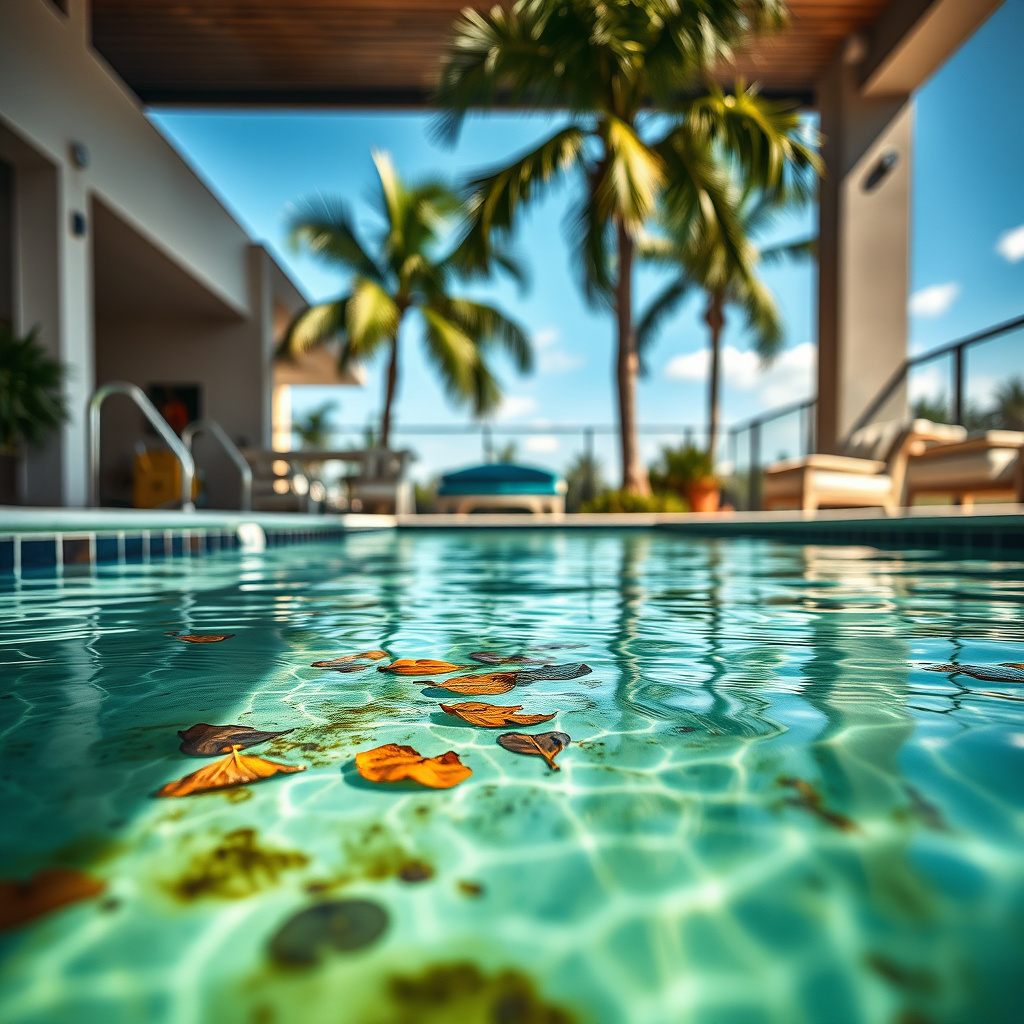What are the effects of improper chemical balancing in pools in Kissimmee? It refers to the negative consequences that occur when pool chemicals are not maintained at the correct levels, leading to water quality issues, damage to pool surfaces, and potential health risks for swimmers.
Have you ever wondered, ‘What are the effects of improper chemical balancing in pools in Kissimmee?’ This question is crucial for anyone who owns a pool or is considering using one.
In this post, we will explore the various consequences that arise when pool chemicals are not properly balanced. From murky water to potential health hazards, the impact on your swimming experience can be significant. You’ll learn how to identify these issues and the importance of regular maintenance.
Stay with us to discover how to keep your pool safe and enjoyable!

When it comes to owning a pool in Kissimmee, proper chemical balancing is a crucial aspect that often goes overlooked. Failing to maintain the right chemical levels can lead to a host of issues that not only affect the pool’s cleanliness but also the health and safety of its users. In this article, we will delve into the effects of improper chemical balancing in pools and provide you with the knowledge to keep your swimming environment safe and enjoyable.
Understanding Pool Chemistry: The Basics Everyone Should Know
Every pool owner should have a solid grasp of basic pool chemistry. The key components include pH levels, alkalinity, and chlorine levels. Understanding how these elements interact is fundamental for a safe swimming environment.
- pH Levels: This measures the acidity or alkalinity of your pool water. Ideally, pH should be between 7.4 and 7.6.
- Alkalinity: This acts as a buffer for pH, helping to prevent drastic changes. A range of 80-120 ppm (parts per million) is recommended.
- Chlorine Levels: Chlorine is vital for sanitizing your pool. The optimal level is between 1-3 ppm.
The Importance of Proper Chemical Balance: Why It Matters
Maintaining the right chemical balance in your pool is essential for several reasons:
- Prevention of Waterborne Illnesses: Improper chemical levels can lead to algae growth and bacteria, increasing the risk of infections.
- Protection of Equipment: Unbalanced water can corrode or damage pool equipment, leading to costly repairs.
- Enhanced Swimming Experience: Balanced water is clearer, more inviting, and more enjoyable for swimmers.
Key Criteria for Evaluating Pool Chemical Products
Choosing the right chemical products for your pool can be overwhelming. Here are some criteria to consider:
- Brand Reputation: Look for trusted brands with positive reviews.
- Product Labels: Read labels carefully to understand what chemicals are included and how to use them.
- Quality vs. Cost: Investing in high-quality chemicals can save you money in the long run by reducing the need for repairs and maintenance.
Step-by-Step Guide to Achieving the Perfect Chemical Balance
To achieve the ideal chemical balance, follow these steps:
- Gather Supplies: You’ll need a testing kit, pool chemicals, and safety gear.
- Test Water: Use your testing kit to check pH, alkalinity, and chlorine levels.
- Add Chemicals: Based on test results, add the necessary chemicals to adjust levels.
- Retest: Wait a few hours and retest the water to ensure levels are balanced.
Advanced Tips for Professional-Level Pool Maintenance
To take your pool maintenance to the next level, consider these advanced techniques:
- Seasonal Adjustments: Be aware of how the changing seasons can affect chemical balance.
- Environmental Factors: Rain, sunlight, and debris can impact your pool’s chemistry.
- Regular Maintenance: Schedule regular check-ups to keep your pool in pristine condition.
Common Mistakes in Pool Chemical Balancing and How to Avoid Them
Many pool owners make mistakes when balancing chemicals. Here are some common pitfalls:
- Over-chlorination: Adding too much chlorine can irritate skin and eyes.
- Ignoring pH Levels: Letting pH fluctuate can lead to serious issues with water quality.
- Neglecting Regular Testing: Failing to test water regularly can result in unbalanced conditions.
By being aware of these mistakes and taking proactive measures, you can maintain optimal water conditions and extend the lifespan of your pool.
Conclusion
Understanding the effects of improper chemical balancing in pools is essential for every pool owner in Kissimmee. By following the guidelines outlined in this article, you can ensure a safe and enjoyable swimming experience. Don’t hesitate to reach out to professionals, like the Jolly Family, for expert advice and assistance in maintaining your pool.
Expertise in Pool Maintenance
With over 10 years in the industry, Jolly Family specializes in pool cleaning, water treatment, preventative maintenance, and more. Our experience across Kissimmee, Davenport, and surrounding areas positions us as a trusted source for understanding What are the effects of improper chemical balancing in pools in Kissimmee?
Our Location: 9102 Hotoon Way – Devenport – Orlando – Florida
Frequently Asked Questions
What happens if pool chemicals are not balanced?
Improper chemical balancing can lead to several issues, including cloudy water, algae growth, and skin or eye irritation for swimmers. It can also damage pool equipment and surfaces, leading to costly repairs.
How does pH imbalance affect pool water?
A pH imbalance can cause skin irritation and eye discomfort for swimmers. Low pH can corrode pool surfaces and equipment, while high pH can lead to scaling and reduced effectiveness of chlorine.
What are the signs of chlorine imbalance in a pool?
Signs of chlorine imbalance include strong chlorine odors, green or cloudy water, and increased algae growth. Low chlorine levels can lead to unsanitary water, while high levels can irritate skin and eyes.
How often should pool chemicals be tested?
It's recommended to test pool chemicals at least once a week, or more frequently during heavy use or after heavy rain. Regular testing helps ensure balanced water, preventing potential issues.
Can improper chemical balancing affect pool safety?
Yes, improper chemical balancing can compromise pool safety. Unbalanced water can lead to slippery surfaces, visibility issues due to cloudy water, and increased risk of waterborne illnesses for swimmers.



